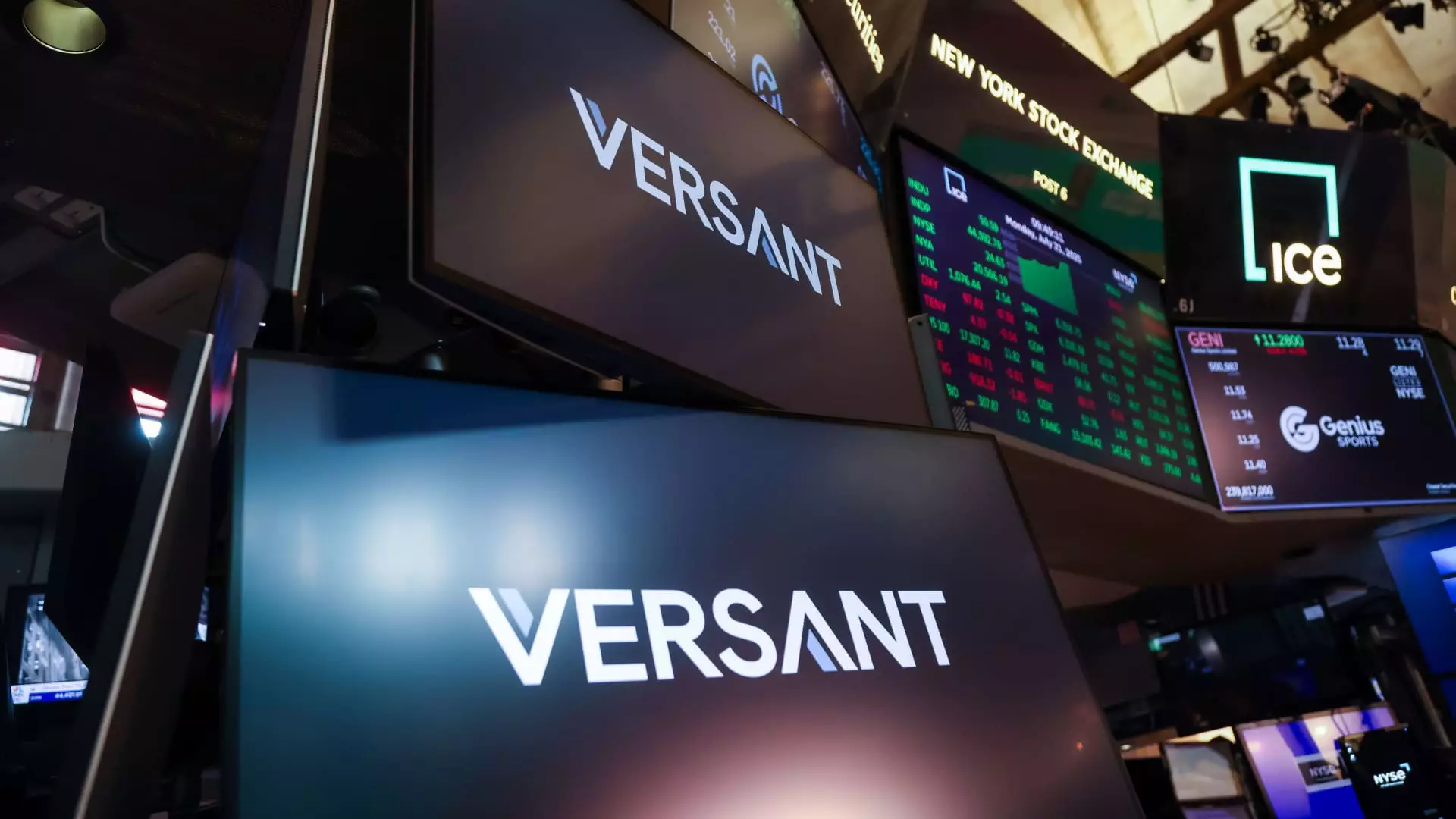In an era where media conglomerates are desperately seeking relevance and agility, Comcast’s decision to spin off its cable networks into a new entity, Versant, is not just a strategic maneuver; it’s a declaration of independence from the past. By carving out its cable and digital assets—ranging from NBCUniversal’s traditional cable staples like USA Network and CNBC to digital giants such as Fandango and Rotten Tomatoes—Comcast is positioning itself at a pivotal crossroads. This move reveals a clear recognition that the old model of vertically integrated, monolithic media giants is no longer sustainable in the rapidly evolving digital landscape.
Rather than sitting back and resisting change, Comcast is proactively restructuring its core assets to adapt to consumer preferences that favor niche, targeted content and digital platforms. The creation of Versant signals a desire to unlock value more effectively, free from the bureaucratic constraints of a giant conglomerate. But more critically, it signals a shift towards a more competitive environment that could reshape media ownership patterns with long-lasting effects.
Board Composition: A Reflection of Ambitious Horizons
What stands out most is the carefully selected composition of Versant’s board. Bringing together top-tier talent from various industries—media, finance, law, technology—indicates that Versant doesn’t intend to merely be a smaller, independent version of its predecessor. Instead, it aims to challenge the status quo.
Mark Lazarus’s leadership as CEO signals continuity and deep industry expertise. His experience with NBCUniversal ensures that Versant will leverage its strong heritage while striving for innovation. David Novak’s role as prospective chairman, with his background leading Yum Brands, underscores an emphasis on strategic brand management and consumer engagement—crucial elements in the fiercely competitive media sphere.
The inclusion of Rebecca Campbell, a Disney veteran, highlights a recognition that international content and entertainment innovation are key to future growth. Meanwhile, legal and financial experts like Creighton Condon and Len Potter bring pragmatic oversight and a focus on operational rigor, which is essential amid the complexities of media mergers, acquisitions, and digital platform management.
This diverse assembly reveals that Versant is built not only for stability but for competitive agility in a fragmented industry where power is increasingly concentrated within a handful of technologically savvy players. It suggests an intent to push boundaries, innovate, and possibly challenge larger players who are slow to adapt.
The Implications for the Media Landscape
The strategic carve-out of cable networks and digital properties under Versant is a watershed moment that could redefine the boundaries of traditional media corporations. Historically, conglomerates like Comcast tailored their business models around owning vast networks and content under one umbrella. This model, however, has come under strain from cord-cutting, increased regulation, and the rising dominance of digital-native platforms.
By disentangling these assets, Comcast might be preparing to compete more effectively with tech giants such as Netflix, Amazon, and Apple, which are reshaping entertainment delivery. It highlights a recognition that content alone is no longer king—and distribution channels outside traditional cable are dominant.
Furthermore, spinning off CNBC, a flagship business news channel, indicates a strategic prioritization of digital monetization and targeted niche markets over broad-based cable subscription models. This isn’t merely a corporate restructuring; it’s an ideological shift that prioritizes adaptability, innovation, and shareholder value.
This bold move also raises questions about the future of consolidated media power. Will Versant become a challenger to the big giants? Or will it remain a niche player, leaning into its digital and specialized content growth areas? Either way, its formation underscores the critical transition from traditional cable dominance toward a new era where operational flexibility and strategic agility become the new currency.
Center-Right Liberalism: Navigating a Balance
From a political perspective aligned with center-right liberal values, the creation of Versant embodies a cautionary yet optimistic approach. It champions free enterprise, innovation, and the importance of competitive markets, all while recognizing that government regulation must adapt to new realities.
While critics might argue that such corporate restructurings could lead to increased consolidation or monopolistic tendencies, the decision to spin off assets offers an opportunity for more market-driven competition—fostering innovation and consumer choice. The focus on digital platforms and content specialization aligns with a belief that private enterprise, operating in a competitive and transparent environment, will better serve the public interest than insulated, monopolistic entities.
Yet, vigilance remains essential: the danger of corporate entities becoming too powerful or influencing public discourse disproportionately cannot be ignored. As Versant aims for independence and innovation, policymakers should watch how these changes influence media diversity, access, and fairness—core tenets that align with center-right liberal principles advocating for economic freedom balanced with accountability.
Comcast’s strategic repositioning through Versant is more than a corporate shake-up. It signifies a decisive move toward a more flexible, competitive, and digitally oriented media landscape—one that could challenge the status quo while embodying core liberal values of innovation and free enterprise. The power dynamics in media are shifting, and whether this will lead to greater consumer choice or concentrated influence remains an open debate—yet, it is undeniable that we are witnessing a pivotal moment in media history.


Leave a Reply